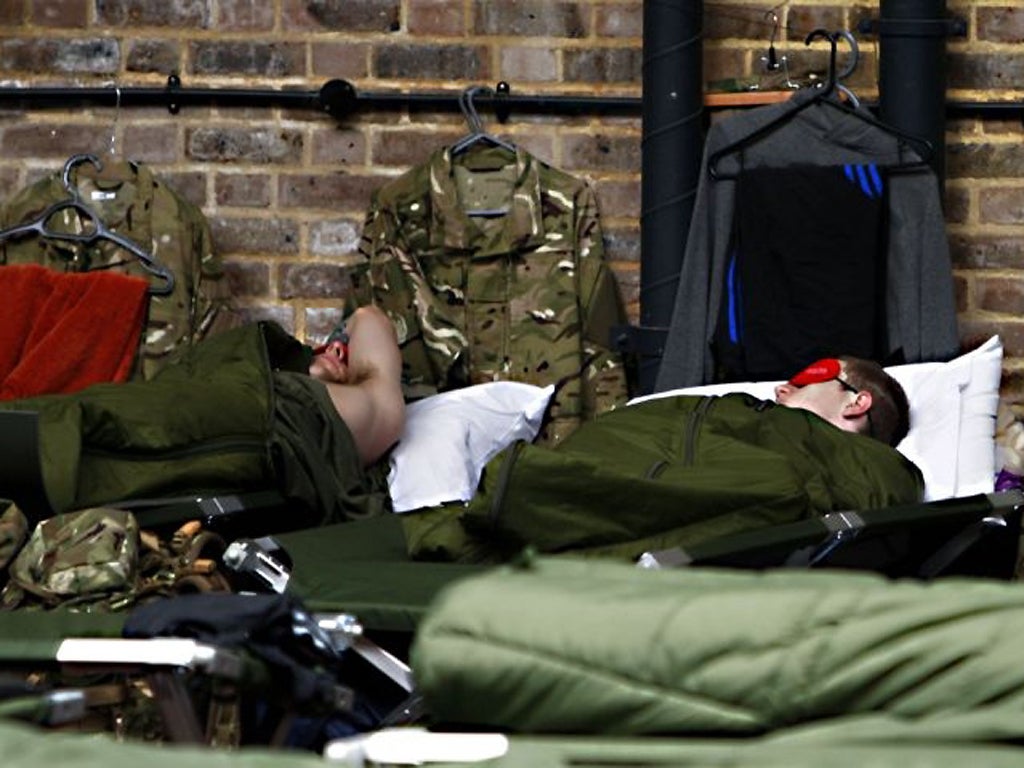Where will you go when the party's over? Police and soldiers face losing their jobs

Britain's post-Olympic glow was barely allowed to last a day with police cuts and huge rail fare increases being announced as the athletes made their way out of the Village and the country returned to normal.
Britain had just begun bidding farewell to the Games that have brought a wave of good feeling across the country when reality bit.
The National Olympic Security Co-ordinator delivered the first blow, warning that thousands of police could now lose their jobs after cutbacks were delayed to ensure the smooth running of the Games.
Chris Allison, the Assistant Commissioner of the Metropolitan Police, had asked chief constables across Britain to postpone cutting specialist officers until after London2012, but he said yesterday that "very difficult decisions" now had to be made.
He added: "When the Comprehensive Spending Review was announced a couple of years ago, we were told we would have to reduce policing costs by 20 per cent over four years. Thankfully, I've been fantastically supported by my chief constable colleagues up and down the country because I asked them to delay any cuts in specialists until after the Games as I needed those specialists to deliver the Games, and we've been able to deliver what I think's been a fantastic event.
"But those cuts are starting to bite, they're starting to hit the service and nationally chief constables are having to make some very difficult decisions about what they're going to stop doing to ensure that they live within the budget that's now been given to them. We are exactly the same in the Met, and very hard and difficult decisions are going to have to be made as we plan for the future." Scotland Yard has been told to save £500m, and last month the outgoing Chief Inspector of Constabulary, Sir Denis O'Connor, warned that it had to plug a £233m hole.
Many service personnel also face uncertain futures despite their work to secure the Games. In an interview with i, the Defence Secretary, Philip Hammond, said cuts had to go ahead. "There is a moral and a practical dimension to it. You shouldn't send people out to do a job which you cannot afford to equip them to do," he said.
Meanwhile, commuters are to be hit with big rises in season ticket prices. The July Retail Prices Index to be released tomorrow by the Office for National Statistics is expected to come in at 2.8 per cent. Average ticket price rises are usually based on RPI plus 3 per cent, which means commuters could face at least a 6 per cent rise from January 2013. The Campaign for Better Transport said UK rail users already paid 10 times the price of fares on the continent.
The exodus from the Village began early yesterday as thousands of athletes flocked to a specially-built terminal at Heathrow airport, while others were booked on Eurostar.
One positive for those sad to say goodbye to the likes of Usain Bolt is that the Paralympics is setting up to take place in two weeks' time. Organisers are expecting the first sold-out Paralympics in history, with 2.1 million of the 2.5 million seats already sold. "Our aim is to sell every single ticket," said Sir Philip Craven, head of the International Paralympic Committee. "It would be fitting when the Paralympic movement returns to its spiritual birthplace that it does so in front of packed sold-out venues."
Olympic venues will now be reconfigured to hold Paralympian sports. Buses will be made wheelchair accessible and the Athletes Village will get ready to welcome 4,200 competitors from 165 nations from 20 August.
Join our commenting forum
Join thought-provoking conversations, follow other Independent readers and see their replies
Comments
Bookmark popover
Removed from bookmarks